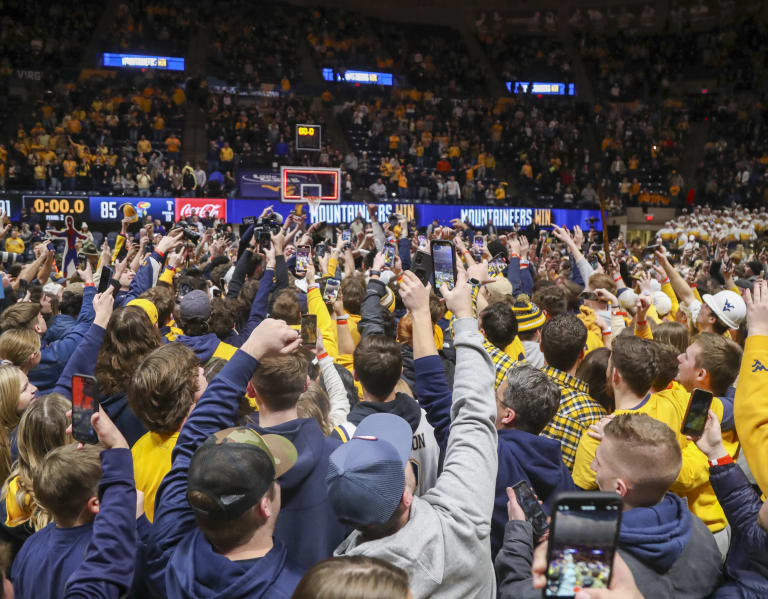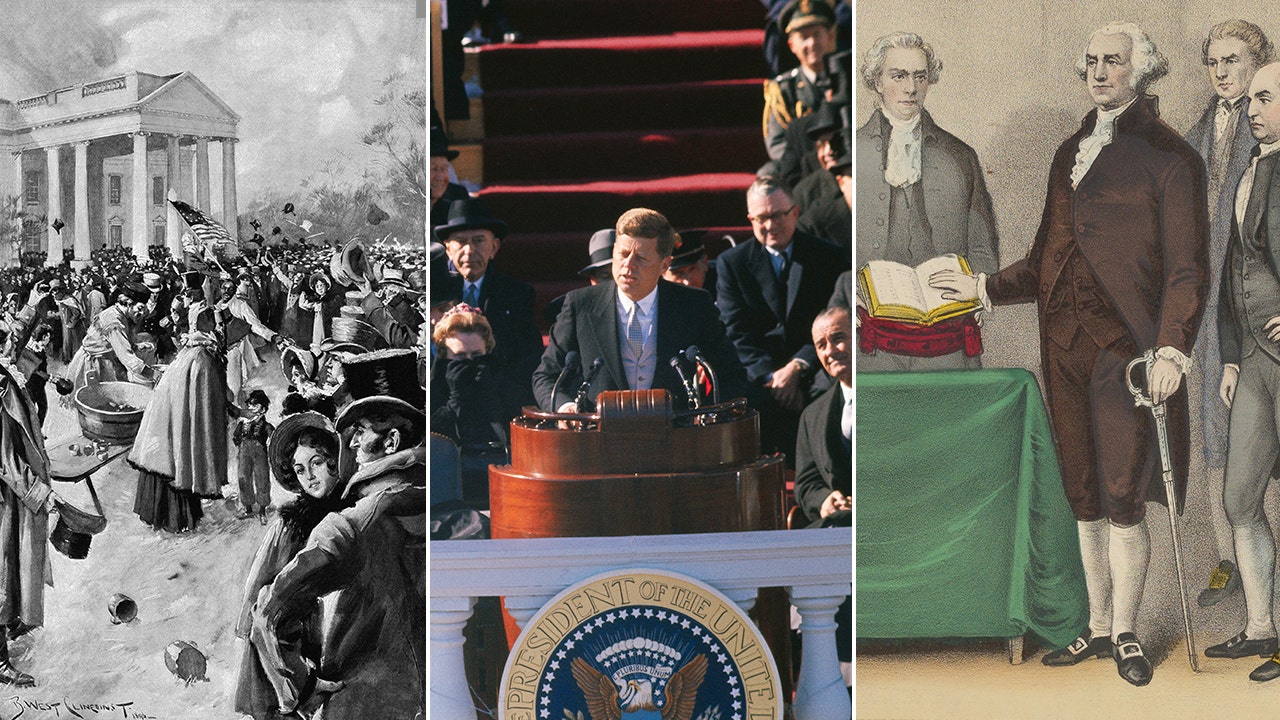Virginia
The feds extended the deadline for the Southgate pipeline extension. Here’s a refresher. – Virginia Mercury

Federal energy regulators last week approved a three-year extension for Mountain Valley Pipeline to build a planned 75-mile offshoot of its main natural gas pipeline that would run from Pittsylvania County to North Carolina.
The Federal Energy Regulatory Commission gave Mountain Valley until June 18, 2026 to complete the Southgate extension, despite complaints that the project would cause air and water pollution and is not necessary.
Progress on the Southgate extension has been tied to Mountain Valley’s progress on the 303-mile mainline that will deliver natural gas from the Utica shale fields in West Virginia into Pittsylvania. When FERC approved the offshoot in 2020, it made that approval conditional on Mountain Valley receiving the necessary permits for the mainline.
For a while, that left Southgate mostly dormant as the larger pipeline struggled to overcome a series of lawsuits and repeated court rulings against its completion. But in June, the federal Fiscal Responsibility Act fast-tracked completion on the mainline by including a provision that mandated approval of the environmental permits tied up in lawsuits and prevented any further litigation against it.
In June, Mountain Valley argued to FERC that the Fiscal Responsibility Act satisfied the requirements of the commission’s conditional approval of the Southgate project. In issuing the recent extension, the commission said Mountain Valley hadn’t acted in bad faith by concentrating on the mainline in lieu of the extension.
What has been done on the Southgate extension?
Not much. Construction on the project has not started.
Before construction on the extension can start, FERC needs to issue a notice to proceed after confirming the project has received all state and federal permits it needs. Two state permits, an air permit from Virginia and a water permit from North Carolina, are still outstanding.
Virginia previously rejected an air permit sought by the company to build the Lambert compressor station in Pittsylvania County, which would repressurise gas from the mainline in order to send it the rest of the way into Rockingham and Alamance counties in North Carolina.
The compressor station was proposed to go near Chatham. The State Air Pollution Control Board rejected the air permit in December 2021 on the grounds that it didn’t meet the “fair treatment” requirements of the state’s 2020 Environmental Justice Act. The board noted that 32% of the population surrounding the site were Black, while Black people made up 20% of the state’s population.
The rejection led to 2022 legislation that transferred permit approval authority from the air board to the Virginia Department of Environmental Quality.
North Carolina has denied Southgate a necessary water permit twice, citing “unnecessary and avoidable impacts to surface waters and riparian buffers.”
What permits does the Southgate extension still need?
Everything it wasn’t able to get before: The Virginia and North Carolina permits, as well as a federal permit from the U.S. Army Corps of Engineers required for projects that release dredged or fill material into waterways.
Shawn Day, a spokesperson for the project, said, “At the appropriate time, Mountain Valley intends to pursue all necessary permits and authorizations to complete construction of the MVP Southgate project.”
What else needs to be done?
Mountain Valley needs to consult with the U.S. Fish and Wildlife Service to see if Southgate will have any impacts on the long-eared and tri-colored bats, which have been listed as endangered since the initial approval.
An earlier environmental analysis found the project was not likely to adversely affect bat species, but the addition of the new species requires a second look.
FERC said last week it could revisit the project’s broader environmental analysis prior to allowing Mountain Valley to start construction if U.S. Fish and Wildlife determines there would be an adverse impact.
The company will also need to reopen eminent domain proceedings in North Carolina if it continues to pursue private lands for the project. The company withdrew from those proceedings in 2022, and the one-year deadline to resume the cases has passed.
How much will the project cost, and when will it be done?
Hundreds of millions and to be determined.
The project’s website lists a price tag of $480 million, including $68 directly spent in Virginia and $113 directly spent in North Carolina.
As for timing, Day, the project’s spokesperson, said: “There is no update or estimate for construction start or in-service dates available at this time.”
What are the arguments against the project?
Some local and environmental groups have opposed Southgate because of the pollution the compressor station would produce and because they say the need for natural gas is diminishing as concerns over climate change mount and the country moves toward renewables.
The Pittsylvania branch of the NAACP argued Mountain Valley has done “nothing” since the air permit denial in December 2021 to address the findings of the Virginia air board.
Virginia regulatory board denies Mountain Valley Pipeline compressor station permit
“If approved, MVP’s compressor station would operate near our home,” wrote NAACP branch member Anderson Jones in a letter to FERC. “Our 57-acre loblolly tree farm has been in my family for almost a century. Our farm and the Lambert site are zoned for agriculture, not industry. We want to protect our home and our heritage for our children and our grandchildren.”
Other arguments have focused on concerns over greenhouse gas emissions, the primary driver of climate change.
In a letter signed by Democratic U.S. Reps. Jennifer McClellan and Bobby Scott of Virginia, 22 members of Congress told FERC that “if built, this pipeline would lock homes and businesses in the Southeast into the long-term use of natural gas during a critical moment in which we must transition away from fossil fuels to avoid the worst impacts of climate change.”
What are the arguments for the project?
Supporters say the project is needed for economic growth and that natural gas is still a backbone of the U.S. energy industry.
Mountain Valley Pipeline has estimated the project could produce $10.4 million in tax revenue during construction and about $4.6 million in continued tax revenue during operation. The project could employ up to 570 people in Virginia and another 1,130 in North Carolina.

Virginia Gov. Glenn Youngkin has argued natural gas is a “bridge fuel” needed for reliability as the state works to decarbonize its grid by midcentury.
“In general, it is my position that a healthy natural gas supply and delivery system benefits all Virginians,” Youngkin wrote in a letter to FERC supporting the project extension.
Barry DuVal, president and CEO of the Virginia Chamber of Commerce, said that by increasing the gas supply, the project “will likely result in cleaner, more efficient power generation and will help ensure that Virginia lowers its already competitive electric rates, a factor considered by businesses looking to relocate to Virginia. Further, this transformative project could encourage the development of additional energy infrastructure, which could advance business development and long-term economic growth in the region.”
GET THE MORNING HEADLINES DELIVERED TO YOUR INBOX

Virginia
Virginia AG drops case that accused ex-superintendent of firing teacher in retaliation

Virginia’s attorney general dropped a case against a former school superintendent who was accused of firing a teacher because she spoke out about a student inappropriately touching her.
The former teacher, Erin Brooks, wanted to put the matter behind her and recently resolved a lawsuit against the former superintendent and Loudoun County Public Schools, the attorney general’s office said in a court filing Thursday.
“Words cannot express how grateful I am to the office of and the Attorney General himself, for the unwavering support and dedication to this case,” Brooks said in a statement released by Attorney General Jason Miyares.
The former superintendent, Scott Ziegler, maintained his stance that the case was politically motivated. Ziegler also said in a statement that “new evidence would have demonstrated that I acted in the best interest of Loudoun County’s most vulnerable students.”
The attorney general’s office was pursuing a conviction against Ziegler for the second time. He was convicted in 2023 on a misdemeanor count of violating Virginia’s conflict of interest laws for retaliating against Brooks.
A judge ruled last year that faulty jury instructions rendered the conviction illegitimate, even though there was “ample evidence” to support a jury’s conclusion of retaliation. A new trial was supposed to start next month.
Brooks had worked as a special education teacher in Loudoun County, which is outside of Washington. She spoke to a special grand jury that was investigating the school system for its handling of sexual assaults.
Brooks told the grand jury and school system critics about her difficulties dealing with a special needs student in elementary school who had been touching her inappropriately.
Prosecutors said Ziegler’s efforts to ensure Brooks’ teaching contract was not renewed amounted to retaliation for her speaking out on a matter of public interest.
Ziegler argued at trial that the teacher’s dismissal was unrelated to her speaking out. His lawyers also argued that the prosecution was politically motivated.
Miyares, a Republican, and Republican Gov. Glenn Youngkin had criticized Loudoun school system administrators during their successful 2021 campaigns for office.
They claimed that school leadership ignored parent concerns about the handling of transgender students, as well as the school system’s handling of a student who sexually assaulted classmates at two different high schools that year.
The case received outsized attention because the boy who was convicted in both attacks wore a skirt in one of them, assaulting a girl in the women’s bathroom. It played into a national debate over how schools should treat transgender students and whether they should be allowed to use restrooms different to their biological sex.
Miyares had convened the special grand jury at Youngkin’s request in January 2022. A scathing report that December accused the school system of mishandling the high school assaults, the superintendent of lying to the public, and authorities of ignoring multiple warning signs.
In his statement Thursday, Ziegler said prosecutors in his case disregarded facts and wasted taxpayer money.
“At its core, this effort was designed to sway voters in Northern Virginia, prioritizing political gain over truth and justice,” he said.
In his news release, Miyares said he would “protect the rights of teachers and parents without hesitation.”
“Sometimes it takes the courage of one person to stand firm to create change,” Miyares said. “Today, the entire national narrative has changed thanks to Erin’s resilience. Erin’s demand to be respected was upheld by a jury of her own peers.”
Virginia
By The Numbers: West Virginia vs. Top Ten Teams at Home

By The Numbers: West Virginia vs. Top Ten Teams at Home
When West Virginia hosts No. 2 Iowa State on Saturday, they will have a chance to pick up their fourth ranked win of the season, but it would be their first at home.
Ranked teams coming to play at the WVU Coliseum are not uncommon. All-time, WVU is 61-77 against ranked teams in games played at home.
We look at the numbers of West Virginia facing top-ten teams at home ahead of their game against No. 2 Iowa State this weekend.
All-Time Numbers
West Virginia is 23-42 against top-ten teams at home, and since the 2014 season, they are 10-9 against top-ten opponents at home.
West Virginia will be an unranked team this weekend, and WVU is 15-30 against top-ten teams. Against teams ranked fifth or higher in the country, WVU is 9-24. When WVU is an unranked team, they are 9-24 all-time against teams ranked in the top five.
All-time, the average rank when the Mountaineers face top ten teams is 5.4. They are scoring 71.2 points per game, while their opponents are scoring 73.4 points per game.
Breaking Down the Wins
West Virginia has 23 wins against teams ranked in the top ten, with the most recent coming last season against Kansas, when the Mountaineers defeated the Jayhawks 91-85.
The highest rank Iowa State has ever been in a home game for West Virginia is No. 11. This was back in the 2014 season, and the unranked Mountaineers took down the Cyclones 102-77.
In West Virginia’s 23 wins against top-ten opponents at home, the average score is 79.7-70.5, with the average rank of their opponents being 6.1. In WVU’s last 10 games against ranked opponents at home, the Mountaineers are 3-7.
Their three wins came against No. 3 Kansas (2024), No. 10 Texas Tech (2021), and No. 4 Baylor (2020). In those three games, the average score was 85-78.7.
West Virginia is 2-2 against teams ranked No. 2 in the nation, coming against Kansas in 2017 (85-69) and then against UCLA in 2007 (70-65).
Since 2010, West Virginia is 8-5 as an unranked team at home versus top ten teams. Iowa State has been a ranked opponent five times on the road against WVU. West Virginia is 4-1 in those games.
Breaking Down the Losses
West Virginia has 42 losses at home against ranked teams, dating back to 1952.
In those losses, the average score was 66.5-74.9, and the average rank of the opponent was 5.0.
The lone loss to a ranked Iowa State team at home came during the 2014-2015 season when No. 14 WVU lost to No. 17 Iowa State, 74-72. Iowa State has never entered the WVU Coliseum as a top-ten team.
In Big 12 games, WVU is 10-10 against top-ten teams. In those games, the average score is 72.6-72.4 in favor of the Mountaineers. In the losses, the average score is WVU losing 72.5-64.1.
Out of the last 10 games against a top-ten team at home, there have been seven losses for the Mountaineers, including a stretch of five straight from 2021 vs. Texas through 2023 vs. Kansas. In those five games, the average score was WVU losing, 73-63.8.
WVU’s two losses to teams ranked No. 2 in the nation came against Kansas in 2013 (61-56), and to Pitt in 1988 (70-64).
Tip-off between West Virginia and No. 2 Iowa State is set for 5:00 p.m. from the WVU Coliseum on Saturday. The game will be televised on ESPN+. This will be the 374th game in program history against a ranked team for the Mountaineers.
———-
• Talk about it with West Virginia fans on The Blue Lot.
• SUBSCRIBE today to stay up on the latest on Mountaineer sports and recruiting.
• Get all of our WVU videos on YouTube by subscribing to the WVSports.com Channel
• Follow us on Twitter: @WVSportsDotCom, @rivalskeenan, @wesleyshoe
•Like us on Facebook, Instagram and TikTok

Virginia
UCWVA hosts Lobby Day: Advocating for workers’ rights at Virginia Universities

BLACKSBURG, Va. (WDBJ) – The United Campus Workers of Virginia (UCWVA) is set to gather at the Belitower at Capital Square in Richmond for a Lobby Day and Rally Friday afternoon. It’s aimed at restoring bargaining rights and advocating for a more equitable future for Virginia universities.
United Campus Workers of Virginia, a member-led union, is dedicated to advocating for the rights and well-being of higher education workers. The union represents workers from William & Mary, the University of Virginia, Virginia Tech, and Virginia Commonwealth University.
“It’s not just faculty, its not just students; It’s sort of everybody and recognizing that we have shared goals. Things like making sure people have appropriate levels of leave. Making sure we have affordable housing for people. Making sure that we have childcare for individuals who have kids. So, our union is based on trying to advance whose goals,” said UCWVA Virginia Tech Chapter Chair and VT professor Nick Ruktanonchai.
The union’s Lobby Day and Rally in Richmond provides a platform for higher education workers to engage with state legislators about challenges facing Virginia’s university sector and discuss potential solutions. Ruktanonchai, who attended his first Lobby Day last year, expressed the experience of uniting with colleagues from different campuses.
“I never felt that connected to the democratic process, to the actual creation of legislation before that moment. It was just really empowering; I think for me and my colleagues in UCWVA. We all felt that we were able to come together, decide what our priorities were as a unit and then present those priorities,” said Ruktanonchai.
A key focus this year is reinstating collective bargaining rights for public sector workers. These rights were stripped away by the Virginia Supreme Court in 1977 and have been banned by state law since 1993.
“The most important thing about collective bargaining is it gives us a seat at the table. Administrations have increasingly dictated working conditions for staff across campuses. They’ve done things like try to push specific research strategies, research aims. They’ve tried to dictate how we teach and what we teach. It also infringes on free speech. Right now, a lot of those decisions are made by the Board of Visitors, who aren’t elected. Faculty, staff and students don’t have nearly as much of a say as they should in that process,” said Ruktanonchai.
If passed, the collective bargaining bill will give workers a voice to negotiate fair wages, timely pay, and better workplace conditions.
UCWVA invites all public sector workers, higher education advocates, and supporters of workers’ rights to join the rally at 2 p.m. and help amplify the call for transformative change.
Copyright 2025 WDBJ. All rights reserved.
-
/cdn.vox-cdn.com/uploads/chorus_asset/file/25822586/STK169_ZUCKERBERG_MAGA_STKS491_CVIRGINIA_A.jpg)
/cdn.vox-cdn.com/uploads/chorus_asset/file/25822586/STK169_ZUCKERBERG_MAGA_STKS491_CVIRGINIA_A.jpg) Technology1 week ago
Technology1 week agoMeta is highlighting a splintering global approach to online speech
-

 Science7 days ago
Science7 days agoMetro will offer free rides in L.A. through Sunday due to fires
-
/cdn.vox-cdn.com/uploads/chorus_asset/file/23935558/acastro_STK103__01.jpg)
/cdn.vox-cdn.com/uploads/chorus_asset/file/23935558/acastro_STK103__01.jpg) Technology6 days ago
Technology6 days agoAmazon Prime will shut down its clothing try-on program
-

 News1 week ago
News1 week agoMapping the Damage From the Palisades Fire
-

 News1 week ago
News1 week agoMourners Defy Subfreezing Temperatures to Honor Jimmy Carter at the Capitol
-
/cdn.vox-cdn.com/uploads/chorus_asset/file/25826211/lorealcellbioprint.jpg)
/cdn.vox-cdn.com/uploads/chorus_asset/file/25826211/lorealcellbioprint.jpg) Technology6 days ago
Technology6 days agoL’Oréal’s new skincare gadget told me I should try retinol
-
/cdn.vox-cdn.com/uploads/chorus_asset/file/25832751/2192581677.jpg)
/cdn.vox-cdn.com/uploads/chorus_asset/file/25832751/2192581677.jpg) Technology3 days ago
Technology3 days agoSuper Bowl LIX will stream for free on Tubi
-

 Business4 days ago
Business4 days agoWhy TikTok Users Are Downloading ‘Red Note,’ the Chinese App





/cdn.vox-cdn.com/uploads/chorus_asset/file/25530683/Screenshot_2024_07_14_at_6.17.45_PM.png)












